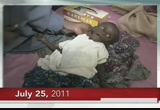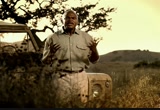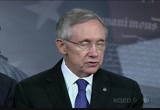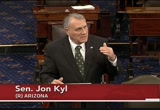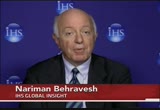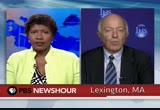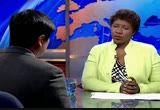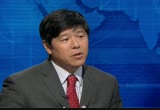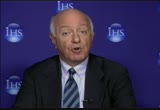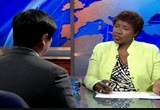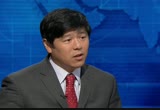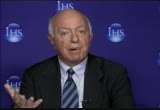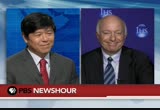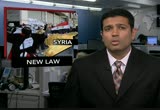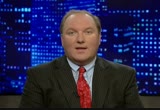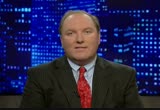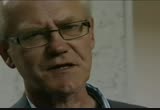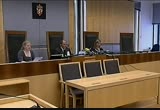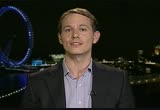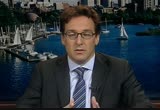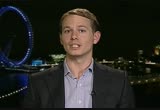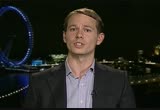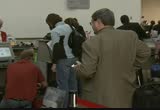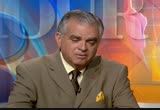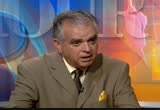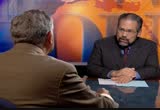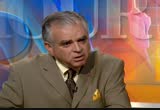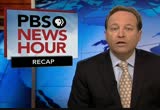tv PBS News Hour PBS July 25, 2011 3:00pm-4:00pm PDT
3:00 pm
captioning sponsored by macneil/lehrer productions >> brown: the gridlock over a deficit reduction deal continued in washington today, even as president obama prepared to address the nation tonight. good evening. i'm jeffrey brown. >> ifill: and i'm gwen ifill. on the newshour tonight, kwame holman has the latest on the budget talks, and we look at what continued stalemate or default would mean for ordinary americans. >> brown: then, as norway mourns the victims of friday's terror attacks, we examine the rise of right-wing extremism in europe. >> ifill: ray suarez talks to transportation secretary ray lahood about the shutdown of airport construction and the layoff of thousands of workers after congress failed to fund the federal aviation administration. >> brown: from the kenya-somalia
3:01 pm
border, we have the story of a hospital struggling to save the youngest victims of the famine. >> the children they treat here have made it out of somalia but only just. only admit the most serious of cases. today like every day the the walls are bursting. >> ifill: and judy woodruff talks to "washington post" foreign correspondent pamela constable, about her new book on pakistan's double game with the >> it's always sort of had this nuanced, subtle, denied unclear relationship with all these militant groups. but now it's all come back to haunt them. u.s. and the taliban. >> ifill: that's all ahead on tonight's newshour. major funding for the pbs newshour has been provided by: >> oil companies have changed my country. >> oil companies can make a difference. >> we have the chance to build the economy. >> create jobs, keep people
3:02 pm
healthy, and improve schools. >> ...and our communities. >> in angola chevron helps train engineers, teachers and farmers, launch child's programs. >> it's not just good business. >> i'm hopeful about my country's future. >> it's my country's future. >> and by the bill and melinda gates foundation. dedicated to the idea that all people deserve the chance to live a healthy, productive life. and with the ongoing support of these institutions and foundations. and... this program was made possible by the corporation for public broadcasting. and by contributions to your pbs station from viewers like you. thank you. >> ifill: with little more than a week until the debt ceiling deadline, lawmakers on both
3:03 pm
sides of capitol hill offered competing plans today on how to avert a crisis. and late today, the white house announced that president obama will weigh in as well, with a prime time address to the nation tonight. newshour congressional correspondent kwame holman begins our coverage. with the most recent hopes of a bipartisan plan fading house speaker john boehner unveiled his own debt strategy this afternoon. >> it's time to get serious about solving america's problems. and i believe our plan is a good step in the right direction. >> it would unfold in two stages. first a six month $1 trillion increase in the debt ceiling coupled with $1.2 trillion in spending cuts. then a congressional commission would work to come up with an additional $1.8 trillion in cuts including entitlement and tax reform to raise revenue. but president obama has ruled out any action that does not raise the debt ceiling through the end of next year. and speaking today at a meeting of the national
3:04 pm
council, he stressed again revenues should be part of any deal. >> people from both parties have said that the best way to take on our deficit is with a balanced approach. one where the wealthiest americans and big corporations pay their fair share too. >> reporter: meanwhile the leader of the democratic majority in the senate, harry reid, has been working on a competing proposal. it would raise the debt ceiling and cut $2.7 trillion in spending. the savings would come from federal agencies and defense spending but avoid controversial changes to entitlement programs and the u.s. tax code. >> so now all the republicans have to do is say yes. unfortunately, the republicans who used to run the congress on the caucuses are being driven by the radical, right wing that is so in tune with the tea party. they want their leaders to
3:05 pm
ignore the american people as they're doing. they want their leaders to ignore the business leaders like the chamber of commerce that they're ignoring. and even a majority of republicans around this country want something to happen and they're refusing to do that. >> reporter: this afternoon reid's plan got official endorsement from the white house spokesman describing it as a reasonable approach. the white house statement also said we hope the house republicans will agree to this plan so that america can avoid defaulting on our obligations for the first time in our history. the ball is in their court. how the continuing threat of default could affect average americans also has been the subject of debate on both sides. >> are we a nation that asks only the middle class and the poor to bear the burden? after they've seen their jobs disappear and their incomes decline over a decade? are we a people who break the promises we made to seniors or the disabled and leave them to fend for themselves? >> so when you raise the top
3:06 pm
two brackets you're not just going to hit the millionaires and billionaires, you're also going to hit a lot of other americans that don't report incomes of over a million dollars a year. >> reporter: but for some americans the long process toward getting a deal done is breeding frustration with washington. >> turn off the ac inside the building until they get it figured out. they'll get it figured out quickly then. >> if congress does not do their job, they're going to really need to get out of the kitchen because it's going to be very hot. >> reporter: meanwhile global financial markets appeared somewhat uneasy that any debt ceiling deal seems to be going down to the wire. secretary of state hillary clinton sought to calm fears this morning. >> so i'm confident that congress will do the right thing and secure a deal on the debt ceiling. and work with president obama to take the steps necessary to improve our long-term fiscal outlook. through more than a century
3:07 pm
much growth the american economy has repeatedly shown its strength, its resilience, and its unrivals capacity to adapt and reinvent itself. and it will keep doing so. >> reporter: at the end of the day on wall street, the dow jones industrial average lost 88 points to close at 12,593. and the nasdaq fell 16 points to close at 2843. >> so as washington struggles for a solution. >> ifill: so as washington struggles for a solution, what might americans have to fear if an agreement isn't reached in time? for that we're joined by nariman behravesh, chief economist at i.h.s. global insight, an economic and financial forecasting company. and kill huh, director of research at the pew center on the states. nariman bre raf esch we are talking about consequences tonight, they seem to move a few stecks forward, a few steps back, which are the consequences we think are are theoretical and which ones are rule? >> well, i think a default
3:08 pm
is theoretical in the sense that the treasury department would to the default on our interest payments. that would be a top priority. so i don't think there will even be a technical default. that's the least achely of all the scenarios. the most ikely if in fact we go past the august 2nd deadline is in fact slashing all kinds of spending including, one has to say, social security because it's a 40% gap between revenues and spending. that's a big gap. means a lot of programs would be cut that would drive the u.s. into a recession. i think that's a much more likely scenario than a default scenario. it just seems inconceivable that the treasury department would not pay on our debt. that would create all kinds of havoc financially here and globally. so i don't think they'll do that. >> ifill: let me ask you a question in addition to that on friday night people said when the markets open on monday morning there is going to be a big effect because of the deal that fell apart on friday night.
3:09 pm
yet we didn't see that much of an effect, why is that? >> well, i think there, a lot of people are second-guessing how financial investors and financial markets are going to react. and they've been wrong and wrong again. most of the markets are a little jittery, a little nervous but they're not panicked yet. i think the heat will get turned up as it were, as we head closer to august 2nd. but right now i would say markets are nervous but not panicked. >> ifill: nervous but not panicked. let's talk about the state because a lot of this trickles down in interesting ways beyond what is happening in washington. and beyond what's happening on wall street. are there states who are bracing for any kind of impact? >> they are. what you have toer is that the federal government defaults the safest government asset world wide would get downgraded by the major credit agencies and that will have a downstream affect it could become much more difficult for states and localities to borrow. they might have lack of access to the market or they might pay more in order to borrow in the long-term if a
3:10 pm
federal default takes place. >> ifill: when we hear ratings agencies threatening to, or at least considering downgrading the federal debt, how does that affect the state? >> well, you have to remember, states borrow for economically productive reasons. they are different from the federal government. they borrow to operate, to keep the lights on and doors open but the state governments and local governments borrow for financing of long-term projects like bridges and tunnels and infrastructure and things of that nature. those projects are economically productive. they create jobs in the communities. and if they have to postpone those project because they can't access the credit markets in an affordable way or can't access them at all that's going to have a consequence for them. >> ifill: how tightly is their ability to borrow tied to the federal ability to borrow? >> as i mentioned the federal government is the u.s. treasuries are the safest asset worldwide. 15 other states out of the 50 have a aaa rating like the federal government but
3:11 pm
moodies as well as other credit agencies have said that they would put even the aaa rated states under review if the federal government were to did fault and subsequently get downgrade there are states whose economies rely on federal spending and have large concentration of federal facilities, employees and things of that nature. so it's going to have an impact. >> ifill: mr. behravesh, people think how does this effect me. will my credit card interest rates go up, will my mortgage go up, should i take my retirement money i'm saving and putting someplace else. is there a connection there? >> there is a potential connection in the sense that if the u.s. were to default we would see a big spike in long-term interest rates so that would affect mortgage rates. it would affect car lending rates. it would affect business lending rates so all of that could be quite problematic for the whole economy. so that's why you know, certainly the treasury department and one has tow say the federal reserve as
3:12 pm
well very worried about this. and want to avoid this at all costs. >> ifill: does it have to actually occur or is merely this delay, this debate s that already putting its own drag on these areas of the economy? >> well, so far i say the uncertainty about what is exactly going to happen, what's going to get cut, what could be affected is giving a lot of consumers and businesses pause, if you will, making it quite risk averse. and one of the reasons we're going through a soft patch, it's not the only reason, one of the reasons is this uncertainty. and what is trickering is risk aversion on the part of businesses and consumers. so already in a sense they're anticipating or worried about what might happen and pulling back. >> ifill: as we sit here tonight part of the debate happening in washington is whether any solution should be a short-term solution or long-term solution. the president said he will not sign anything that
3:13 pm
doesn't take us past the next selection. and a lot of folks on the hill are saying no, we just want to get maybe toward the end of the year. does it matter? >> i think it does. states are required by law, their own constitutions, to balance their budget at the beginning of every year. vermont is the only exexpectation but they make that a practice. they just engaged in four years of very difficult cuts and tax increases in order to close 480 billion worth of shortfall. and there's a lot of uncertainty in the air. so if the federal government defaults and essentially has to prioritize payments moving forward that uncertainty is going to have an impact on states and their ability to deliver important services like health care and education to their community. >> ifill: let me ask you this and i will ask mr. behravesh as well, as we are sitting on the side waiting to see if a deal can be struck s there a contingency plan that ought to be in place or can be in place to stop us from going over the cliff here? >> i don't know about going over the cliff. but states are certainly
3:14 pm
putting in contingency plans. treasury lock leer of california has asked banks to give them, the state a $5 billion line of credit. because he knows he will have cash flow difficulties if the federal government were to default. governor mcdonald in virginia, for example, has made arrangements with the state's own treasury to of cot federal portion of medicaid should the federal government goes into default and it's not able to transfer that money to the states. so states are putting in plans but at the same time the uncertainty is real in a lot of states. much they are watching this conversation carefully. >> ifill: mr. behravesh, in the longer sense what kind of contingency plans are people putting in place or should they be putting in place? >> i think the contingency plans we're keeping on an eye or those of the federal reserve. because if you consider a situation where we might default or would default and the markets panic-- panic, in effect, and there is a sell-off in u.s. government bonds which is what the result would be, the fed
3:15 pm
indirectly, but going into the markets could easily buy a lot of government securities and prevent that sell-off or at least limit the damage from that sell-off. so we're quite convinced the fed already has contingency plans in the event that something like this happened. and its goal, of course, is to minimize the economic damage from something like this. >> ifill: we have heard the chairman of the fed talk about the catastrophic potential here but we haven't heard him say what he would do. do you think that's even part of the plan? >> very much so. he's going to keep his powder dry, he's going to keep his cart close to his vest but there's no debate that the fed has probably multiple contingency plans for a situation like this. they do not want the u.s. economy to be driven back into recession because of essentially bickering in washington. >> nariman behravesh of the
3:16 pm
ihs global inside and kill huh, thank you very much. >> thank you. >> brown: still to >> brown: still to come on the newshour, the attack in norway, and right-wing extremism in europe; transportation secretary ray lahood on layoffs at the f.a.a.; somalia's humanitarian crisis; and a portrait of pakistan. but first, the other news of the day. here's hari sreenivasan. >> sreenivasan: the new american ambassador to afghanistan was sworn in today and pledged there would be no rush to the exits. ryan crocker takes over as the u.s. begins withdrawing 10,000 troops by the end of the year. he said the u.s. has no interest in using afghanistan to influence neighboring nations. meanwhile, the nato toll in afghanistan grew by one today. an italian paratrooper was killed in an insurgent attack in the west. so far in july, 44 international troops have been killed in afghanistan. the government of syria endorsed a draft law allowing other political parties to form. the move is part of a series of reforms president bashar al assad and his ruling ba'ath party promised in the face of a
3:17 pm
popular uprising. but the opposition has dismissed the law as largely symbolic. it came as syrian security forces detained more people in damascus and other cities for holding antigovernment protests. the maid who accused former i.m.f. chief dominique strauss- kahn of sexually assaulting her in a manhattan hotel room broke her silence today. nafissatou diallo told "newsweek," "i want him to go to jail, i want him to know there are some places you cannot use your power." she also told her side of the story in a televised interview with abc news. prosecutors have voiced concerns about her credibility, and are weighing whether to proceed with the case. strauss-kahn has denied the allegations against him. for more on this we're joined by john solomon, news director at "newsweek," and the "daily beast," who spent three hours with diallo during a recent interview. . >> glad to be here. >> so after those three hours what about her side of the story struck you most?
3:18 pm
really, the general conistence from what we heard from the public and saw on the indictment, she told the story to a lot of people, detectives, hospital workers, the grand jurors and the prosecutors. and everything we heard sounded very much like the body of evidence that we've gathered at "newsweek" when we did the story, conforming to hotel key records and phone records. and there were also moments where you saw her evasiveness, her reluctance to talk about things, particularly about her past in africa when. i think that also struck us. >> suarez: what was the reason that she gave for why she's coming out now? is the relationship between the prosecution that frayed? >> yes, i think it's really two factors. one is that the relationship with the prosecutors has really gone south in the last month. after her lawyer came forward and disclosed some of the problems with her prior credibility things went south there. and i think the second part is she personally was offended by the medica yoferj coverage where she is the staed to be portrayed as a prostitute and gold-digging conartist and she wanted to correct the
3:19 pm
record. she said it really bothered her watching tv, seeing these headlines and being portrayed as something she felt she wasn't. >> suarez: john solman of "newsweek" and the daily beast, thank you very much for being with us. >> my pleasure. >> sreenivasan: the united auto workers opened contract talks with chrysler today, the first in a new round of negotiations with all the detroit automakers. company and union officials wore matching jackets in a show of solidarity as they kicked off the talks. workers are pushing for a bigger share of the profits, but chrysler is looking to keep costs down. u.a.w. members gave up raises and benefits to keep the industry afloat four years ago. chrysler's current contract with the union expires in mid- september. the national football league and its players have reached an agreement that will end a four- month-old lockout. representatives of the players association met today in washington and voted unanimously to accept a ten-year deal struck over the weekend with team owners. that bargain now goes to the players association, but is expected to pass. training camps could begin as early as wednesday, and the regular season would begin september 8 as scheduled.
3:20 pm
opponents of new york's gay marriage law sued to overturn it today. marriage ceremonies started yesterday, the first day same- sex couples could legally wed under a new state law. hundreds of gay couples across the state began tying the knot. opponents claim the new york senate stopped lawmakers from speaking against the bill and that it didn't go through the proper committees before coming to a vote in late june. new york joins five other states and the district of columbia in legalizing gay marriage. those are some of the day's major stories. now, back to jeff. >> brown: and we turn to norway, as that country mourns the victims of friday's bombing and shooting attacks, and begins the court process against the killer. we start with a report from carl dinnen of independent television news in oslo. the man in the red top just about adviceable in the car park, it's the killer. anders breivak was rushed to
3:21 pm
court today. in the backseat he smiled, looks relaxed. although breivak admits the killing, he denies he's guilty of a crime. one small mercy today, the police admitted he had shot dead 68 people on the island, not 86 as they had originally thought. >> the police and personnel had a very demanding task on the island. just after they arrived. and it was necessary to give priority to those who were injured, and to secure the whole area. in these complex situations the number of deaths first reported were too high. >> reporter: speaking from france today breivak's estranged father said he wished his son had killed himself. in oslo hundreds had gathered outside the courthouse. but the court rules that the remand hearing would be heard in closed session.
3:22 pm
>> what are the reasons for holding a closed hearing today. >> it's because of the further investigation and also security, this is a very special matter. >> reporter: but after the short hearing the judge emerged to relay through his translator breivak's first explanation for his murderous actions. >> the accused explained that the labor party-- exthat the failed the country and its people and the price was what they had to pay yesterday. was it not to kill as many people as possible but to give a strong signal that cannot be misunderstood. that as long as the labor party keeps driving its ideaological line and keeps destructive norwegian
3:23 pm
culture and mass importing muslims, then they must assume responsibility for this treason. and any person with a conscience cannot allow its country to be-- by muslims, end of court. >> in court breivak claim there were two more cells in his organization. while the police investigate his claims, he has been remanded in solitary confinement for the next eight weeks. a short time earlier at 12 noon noon oslo time there was a minute silence. norway a king, queen and prime minister lead the act of remembrance from the steps of the university. >> eight minutes national-- . >> reporter: in oslo the trams stood still, the rescue workers paused, and across scandinavia the moment was marked.
3:24 pm
then by the field of flowers at the cathedral some people began to sing the words of a famous poem written for the young people of norway. ooze ♪ ♪ ♪ ♪ ♪ >> brown: hours before he carried out his attacks, anders breivik published an extended manifesto on the internet. it detailed his belief, among other things, that islam poses an existential threat to european culture, and that many politicians are complicit in allowing that to happen. we talk about breivik and the broader issue of extremism with jonathan birdwell, a researcher at demos, a british think tank.
3:25 pm
his latest book, "the edge of violence," looks at the relationship between violent and non-violent radicals in europe and canada. and david art, an associate professor of political science at tufts university. his latest book is "inside the radical right: the development of anti-immigrant parties in western europe." >> jonathan bridwell i will start with you. you had a chance to look at this so-called manifesto posted by anders breivak. broadly speaking what dow find there? >> well, it's quite a comprehensive document. he outlines what he sees as the two main enemies as we've heard. mainly the growth of islam in europe and the culture of islam which he sees as a political ideology and also what he calls cultural marxism or multical tura tural-- culturism which he sees a left hand-- which allowed immigration in europe and basically they are the reason why europe is suffering awhat he thinks a
3:26 pm
crisis of cultural self-confidence. so this document outlines his ideology but it also outlines what he thinks the so-called european resistant movement need to do in the next 50 years to fight this threat that he perceives. >> and are there commonalities of ideas of themes. you look at a lot of other extremist groups and their writings on the web and elsewhere. are there commonalities that you see? >> well, there are certainly commonalities with other far right groups in terms of the threats of islam, the kind of shift from race-based arguments to a kind of emphasis on culture and the incombat ability with islam and european culture. but i think what's quite interesting about breivak and unique is the idea that he sees himself as a kind of christian martyr. he believes that he is a member of the knights
3:27 pm
templar which is a medieval organization back in the crusades, so far as i know, that organization isn't currently in existence. so i think that's an interesting u-- unique aspect to breivak compared to other extremist far right groups at the moment. >> brown: david art let me bring you in. we want to be careful to discriminal that nature between one horrific violent act and nonviolent political actions around europe but for context here, the kind of issues we're talking about, to what extent have they become part of the mainstream debate in areas that you study and part of today's politics in europe? >> well, they very much have. you talked about mainstream parties. it was angela merkel about a year ago who talk approximated about multiculturalism has failed. you see similar discourse from nicholas sarkozy and these are obviously mainstream european politicians.
3:28 pm
within radical right political parties and i would distinguish, you are quite right to distinguish from the far right radical political parties with a more extra political subculture among the former these ideas are really their signature issue, anti-immigration which has, and particularly anti-islam. >> brown: and how much power do these parties have in norway and in scandinavia in particular? >> well, in norway they are not currently a member of the government but they won mid 20% of the vote in the last election. they tolerated on minority government between 2001 and 2005. in denmark they are essentially part of a governing coalition there. recently in finland the true fins, party that came from really nowhere has -- did quite well. they're a little small never
3:29 pm
sweden. they are represented, in parliament but they don't have the same influence in sweden as they do in norway and denmark but in all four countries that i've mentioned they are major players. >> brown: about now jonathan bridwell, coming back to the more extreme and violent expressions of this, what is known about the makeup and size of those expressions throughout europe and in scandinavia in particular sm. >> right, well the past three or four years we've seen a kind of growth in these kind of street-based movements. the main one is the uk called the english defense league. now these groups mainly organize demonstrations. they're very kind of loosely organized. and we've seen the growth in these movements across europe and scandinavia to varying degrees of success. we're actually currently in the middle of doing research into street-based movements across europe. and as i said it varies significantly. on the one hand you have the very far extreme neo-nazi
3:30 pm
type groups and then the broader groups that are more populist and more focused on anti-immigration. so you definitely have seen a broader mobilization in the past three or four years of these groups. now the violent side of it is still quite small. but the risk is that the rhetoric of these broader groups, these street-based groups can feed into the individuals like breivak who are more motivated towards violence. >> and is it known, as much known about how well organized these groups are either within countries or in different countries? >> well, it's difficult to determine. like i said, the organizations are quite loosely based. they make use of the internet. they focus on demonstrations. so for example the english defense league is by far the largest. they have 72,000 members on facebook and they attract on average 2 to 3,000 members to their demonstration. but that is significantly
3:31 pm
larger than other groups in other european countries. so i was just in denmark doing research and the fringe groups there are more in terms of 20 to 30 active members but with the broader membership of around 3 to 400. so that was in denmark. so it's quite a large degree of variation. >> and david art, you know, right after this latest incident, of course political parties everywhere, right wick or otherwise denounce the act and wanted to separate themselves. now how did that jive with the normal process there between some of the right wing political parties and the more extremist groups. do they try to separate sthechls normally? >> normally, yes. and i mean the issue of one of the issues with breivak of course is that he was a member both of this-- of the progress party. he was a member of the youth wing before leaving the party. and of the extra parliamentary right so the question is how do these two
3:32 pm
spheres interact and you're quite right that most radical right parties have defounsed breivak and distanced themselves from it. looking at the internet reaction you see only the most extremist fringes celebrating or at least not denouncing, at least not denouncing breivak. i think that obviously people have said well maybe the left sees an opportunity here-- opportunity here to in some sort of morbid way make political play of this. so that, the debate that we're having right now and obviously are going to have for several months, is similar to the one that we have i think in the united states after loughner. i tend to see breivak just to differ with jonathan a bit on the organization of the violent extremist milieu, they're relatively historically have been quite poorly organized. and fragmented.
3:33 pm
and the state's interior ministry in various countries have really been able to pen straight what-- penetrate what organization there is, particularly in germany and to a lesser extent in sweden too. so i see the movement probably as less organized as jonathan does but it certainly does have the potential for mobilization. >> brown: all right. we will leave it there. thank you very much david art and jonathan bridwell in london. thanks a lot. >> thank you. > ifill: now, another budget impasse, this one already being felt at the nation's airports. ray suarez has the story. >> suarez: it will remain business as usual at the nation's airport with air-traffic controllers still on the job. but nearly 4,000 other federal aviation administration employees are out of work immediately, at
3:34 pm
least for the time being. the sflat adjourned friday without re-- reauthorizing the agency's budget as a result ar line authority to collect a 7.5% ticket tax ran out cost the faa about $30 million a day in lost revenue. at issue, republican provisions in the budget bill eliminating 16.5 million dollars in subsidies for ten small rural airports. and a proposal to limit airline workers from unionizing by simple majority vote the shutdown means about 2.5 billion in federal airport construction grants are on hold. including work on control towers at airports in at least five states. long-term funding for the agency expired in 2007. congress has kept it operating through a series of 20 short-term extension bills since that time. while officials stress there will be no immediate impact on day-to-day airport operation, including security screening, it won't
3:35 pm
mean much to the flying public either. it is a windfall for airlines no longer turningover a portion of the ticket price to the federal government. by saturday night nearly all major u.s. airlines had raised fairs by the amount of the taxes that expired the night before. >> and joining me and joining me now is secretary of transportation ray lahood. secretary, let's begin with the mechanics of this problem. what had to happen by friday night that didn't? >> congress needed to pass the 21st extension which they've done on 20 other occasions, without controversial words in them, without controversial provisions. if they had done that, the president would have signed it, 4,000 of our people would not have been furloughed on saturday morning. and thousands of construction workers would have gone to work on construction sites around the country today. and they weren't able to do that. >> suarez: so the majority on the house transportation committee put things in there that the senate simply couldn't sign off on? >> that's correct.
3:36 pm
two provisions which were mentioned in the piece here, one, adding some airports that would not qualify for essential air service dollars and the union provision which the congres congress-- excuse me, which the president said he will veto. those weren't in any of the other 20 extensions. they didn't need to be in 291s extension. that debate it begun-- can begun on after we continue these projects where construction workers are working and where our people are on the job doing their job. >> suarez: now you mentioned 20 previous extensions. this was not a surprise. they knew the deadline was looming. and simply let it happen? >> they let it happen. congress is in session today. they're in session tonight. they should pass a 21st clean extension without these controversial pro-- provisions so that 4,000 faa employees can come to work tomorrow. and thousands of construction workers can begin working tomorrow on
3:37 pm
construction projects in just about every major airport in the country. >> suarez: if you go to an airport tomorrow morning you'll still be screened by a member of the transportation security administration. the people running the tower will still be there and making sure planes are landing and taking off on ton. so who are these 4,000 people who got furloughed friday night at midnight. what do they do that's not getting done right now? >> these are people that are working on next generation technology. they're doing research. they're helping us with the kind of projects that we want to move ahead on in the future. they're hardworking federal employees who work for america trying to make sure that the faa continues to be not only the safest but the best aviation system in the world. this is not the way to run the best aviation system in the world. >> suarez: when the current chairman of the house transportation committee bob
3:38 pm
micah of florida was the ranking member and the democrats controlled the house, he had an interest already in seeing that people without do essential work in the nation's transportation system didn't form unions. he was interested in making it difficult. well, the old saying around washington that elections have consequences, is this one of the consequences? he gets to weigh in on that provision and it's a principles that he thinks is worth fighting for. >> well, look it, he can have that fight during the debate on the overall faa bill. but he shouldn't have that fight that allowed for 4,000 people to be furloughed. these people aren't getting a paycheck. these are people that work for america's aviation system. and the construction workers, one of the largest unemployment segments in our economy today are the building trades, the construction trades. it's over 50%.
3:39 pm
why put all of these people out of work. why should we do that? it's not right. it's not fair. pass a clean bill. the president will sign it, have your debate on the union provision. have your debate on whether small communities should receive money, but not at the extension of these construction workers who can ill afford not to go to work and our employees who are working for america's best aviation system in the world. >> suarez: why is the federal aviation administration living on these short-term appropriations in the first place? why isn't it just funded like other agencies of the federal government? >> well, frankly, because congress hasn't been able to get its act together and pass a long-term bill which we need. which will take us into the next generation technology for putting new technology to guide planes in and out of airports, give us the resources we need to continue to make aviation safe to make it the best that it is in the world, which america's aviation
3:40 pm
system is. congress needs to pass a five or six year bill, give us the resources so we can continue to make progress in aviation. >> but why wasn't there the long-term appropriation to begin with. other agencies aren't being funded this way. you mentioned 21, this is the 21st temporary funding measure that needed to be passed? >> well, the differences as you said earlier, ray, there are-- elections have consequences. people want to put controversial things in these bills and they need to be debated. they need to be worked out and they can be. but not at the extensio extension-- expense of our opportunity to continue to make progress on big construction projects at airports and on our ability to have our people continue to make aviation the best that it is in the world. >> well, you were a member of congress for a long time. 14 years, right. >> yes. >> suarez: and you worked at the elbow of then minority leader bob michael. had anything like this
3:41 pm
happened before during your time in congress? >> these kinds of controversies have occurred over time. but the kind of controversy that's been created by congress not passing a bill is simply not fair to our ability to work on these construction projects, to have construction workers working. we have a lousy economy. we don't need people out of work. for no good reason. if congress really cares about jobs, which every member of congress talks about, if they care about putting their friends and neighbors to work, pass a clean bill. you'll put your friends and neighbors back to work. building projects in your districts, in your states. that's the way to put america back to work. >> can this be remedied one way or another quickly? >> there's a difference put together as was suggested today can. these people be back to work in a matter of days. >> as soon as congress passes another clean extension the president will
3:42 pm
sign it. people can be back to work shortly after that. >> suarez: secretary of transportation ray lahood, thanks for joining us. >> thank you, ray. >> brown: much-needed aid is on the way to more than 11 million famine victims in east africa. the world bank today pledged to donate some $500 million in assistance to the drought- ravaged horn of africa. kevin rudd, australia's minister for foreign affairs, witnessed conditions firsthand today at a u.n. world food program camp in somalia. he warned that the situation is dire. >> this will be five times as bad come the end of the year if we don't act now. it's as certain el as that. people like the brits, the canadians, ourselves, we put our best foot forward and there are other countries as well am but we do need more. but it is a direct appeal to people across the world, governments across the world
3:43 pm
to do their bit. >> brown: a u.n. donors conference set for wednesday in nairobi, kenya, will try to raise as much as a billion dollars in aid money. meanwhile, hundreds of thousands of refugees have fled from somalia into kenya. martin geissler of independent telelvision news is spending time at three hospitals there this week. and be advised: this story contains disturbing images. >> brown: . >> reporter: this is the biggest humanitarian crisis on earth. the intensive care unit at this hospital. the children they treat here have made it out of somalia but only just. the influx of refugees has put a huge pressure on state and staff. they only admit the most serious cases. today like every day the ward is full to bursting. as we film the mother arrived with her baby when doctors saw minage even they were shocked. >> this is a very sick child.
3:44 pm
>> give me the-- please-- this is very weak, very, very weak. >> age just 7 months but the haggard face of a sick old man. >> i need some light. >> he is so dehydrated the staff struggle to find a vein. eventually they connected a drip and gave him vital fluids. the sir ing was bigger than its tiny arm. bewildered and terrified, couldn't muster the strength to cry, just a haunting silent scream. >> if this child hadn't come in here, would he have been alive tonight. >> no, no, i don't think. i don't think. very lucky. >> but now you think. >> yeah there is a good chance, maybe tomorrow or the next day. >> it's amazing. >> yeah, yeah. >> ittological is amazing.
3:45 pm
yesterday we found arden in this ward, he's 3, believe it or not, he weighs less than 12.5 pounds. a healthy child's weight at six months. his grandmother says the family walked here from somalia. it took them four weeks. this morning the nasal feeding tube was gone. he was sitting up and drinking. he had put weight on. with a little help and the right care 9 human body can work miracles. >> this is the best gift i think i can give to any human being. i'm very joyful because that affects somebody's life and at the end of the day, the child will do very well. it gives me inner peace and joy. >> arden's father wanted to take him home. he had other children to look after. arden has a twin. the doctors wouldn't let him go. they sent an ambulance out to bring the brother in for a checkup. this is where the family lives. seven of them in one
3:46 pm
stifling tent. >> how many people. >> even as arden survives will grow up without a mother. she died on the journey down. they buried her at the roadside and carried on. in the hospital the twins were reunited. just look at the difference in size. tonight in the hospital, the hard work continues. the horrors of somalia's famine countered by the hope. minaj makes a wonderful noise. >> screaming. >> he's crying. >> yeah. >> good. >> it's a good sign. >> the crucial first few hours have gone well. but there's a long fight ahead. >> ifill: finally tonight, a key american ally, pakistan, makes its own deals with the taliban in afghanistan, who, in turn, are killing u.s. and coalition soldiers.
3:47 pm
a veteran correspondent and author looks at this tortured relationship. judy woodruff has our book conversation. >> woodruff: while the united states has 100,000 troops fighting in afghanistan, that country's neighbor to the east is in some ways more investigationing and challenging for u.s. policymakers. pakistan is fighting the taliban on its own territory but by some accounts it's supporting the taliban in afghanistan. a new book playing with fire, pakistan at war with itself. by "washington post" correspondent pamela constable dell ofs into all of this. and joins us now, it is good to you have with us. >> thank you so much. >> woodruff: a provocative title, playing with fire, pakistan at wore with itself. what dow mean by that? >> it mean bes-- many layers of meaning in that. playing with fire in the sense that pakistan has always flirted with dangerous notions.
3:48 pm
it's always sort of had this nuanced subtle, denied unclear relationship with all these militant groups mostly because they want us to use them as proxies against india which is their long-term adversary but now it has come back to haunt them and many of these same militant islamic groups that they sort of thought they could manage or handle have gotten way out of control and not only moving against afghanistan but in many cases turning against the pakistani state itself. >> you spent a lot of time in the country reporting from there, pam constable. the feeling many ode pakistanies have for the taliban. we see all these terrible things the taliban does. and yet you say many pakistanies regard it as a force for good. >> yes. i would say that, you know, i don't want to oversimplify by saying that the pakistanies are in love with the taliban. it's not true. most pakistanies have never met a member of the taliban and most pakistanis would
3:49 pm
sit here and say they don't believe in chopping off people's heads or any of the terrible things they do. but on the other hand, there's a great surge in what i call a very emotional kind of attachment to the religion of islam that's been going on in pakistan now for a number of years it was accelerated by the events of 9/11. since then you have had a much more visceral and attitude toward pakistani muslims towards the west and united states and about tear own religion. so i would never go as far as to say they are embracing the taliban. but yes, i would say that particularly among the poor and working pakistanies who are us am limbs and that is again almost 90% of the population, you're seeing a real emotional embrace of a religion and a more violent embrace of it as well. >> another thing you write about with regard to the taliban is how many pakistanies see it as providing justice, to the outside world that sounds
3:50 pm
strange. what dow mean? >> well, i would say that the great majority of the pakistanies don't feel that their democratic system of government has brought them justice in the sense of sort of every day things. if you get caught up in a land dispute with your neighbor it could go to the courts for 20 years and never get resolved and you can get drag mood it many people feel they don't have access to justice. now the taliban in the areas where they have had power, they have brought a kind of crude, kind of religious justice as we would see it, extremely cruel in many senses. but they-- but it's very he fisch int. and when you ask ode pakistanis the question, would you rather see, polls have asked, would you rather have a current form of government or sharia law which is islamic form of government, many people would say sharia law. they might not understand what that would mean if a taliban type group was in power. but there is a strong, strong sense that a religious form of government among many people would
3:51 pm
provide more justice. >> woodruff: you do write to some extent, of course, about the role the united states has played in pakistan. how do you see that connected to what happen in pakistan in the near term? >> it's such a complicated relationship, of course going back to the cold war when you had the americans and pakistanis on the same side supporting the after began insurgents against the brezhnev regime it is a very old relationship, an old and strong strategic partnership. for many, many pakistanis have come here, have gotten-- have settled here. long time relationship but what's happened in lean years, particularly again since 9/11 is it's become a kind of estrangement. there's been a lot of tension add mood the relationship. and because you have militant groups islamic mill grant-- militant groups inside near the border of afghanistan who have been running back and forth and kasing all sorts of problems the americans have responded. particularly responded with this campaign of drone attacks which are unmanned
3:52 pm
predator kinds of planes which drop bombs and missiles on suspected militant hide outs. this has been very controversial in pakistan and the public has gotten very whipped up over this issue of drone attacks. it's become a real buzzword. so now-- . >> woodruff: civilian casualties. >> yes, although i have to say sort of on the grahn scale of things, not that many. but it's there as an issue. and it's got people up set. and of course there are religious leaders who purposefully sort of exacerbate this problem. >> woodruff: to circle back to something you said a minute ago, despite all of these things you chronicle here, do you see hope for this country, that all is not lost. >> i definitely do. there are pakistan has become sort of famously labeled as a failed state. i don't see pakistan as a failed state. i see pakistan as a country with enormous potential that has been failed by its leaders, by its upper-class, and in some cases by its own military institution. but 180 million people with
3:53 pm
you know, all the desires of anyone else to work, you know to be free, to get an education for their kids, to move up in the world. they want what everybody else does and are willing to work for it. so if a new generation of leadership comes along that's really serious about pushing this country into the future, i see no reason why it can't compete with any other country. >> a really wonderful book playing with fire. pakistan at war with itself. pam constable thanks very much. >> you're very welcome. >> brown: again, the major developments of the day. gridlock in washington over a deficit reduction deal continued, with president obama set to address the nation at 9:00 p.m eastern. the norwegian man who has claimed responsibility for a deadly bombing and shooting rampage claimed there were two further cells of extremists who collaborated with him. and the national football league
3:54 pm
and its players reached an agreement to end a four-month- old lockout. there's more online about the debt talks, the somalia famine, and other stories. hari sreenivasan explains. >> sreenivasan: we've compiled a list of ways you can help the victims of the humanitarian crisis in east africa. find that on the rundown blog. should you stash cash in case the government defaults on its debt? find paul solman's answer on our making sense page. plus, on art beat, jeff talks to a "times" of london writer about singer amy winehouse. she died over the weekend at age 27. all that and more is on our web site, newshour.pbs.org. jeff? >> brown: and that's the newshour for tonight. on tuesday, we'll have the latest on the political stalemate in washington over a deficit reduction package. i'm jeffrey brown. >> ifill: and i'm gwen ifill. we'll see you live for president obama's address at 9:00 p.m. eastern time, and also online and again here tomorrow evening. thank you, and good night. major funding for the pbs
3:55 pm
newshour has been provided by: chevron. we may have more in common than you think. and by the alfred p. sloan foundation. supporting science, technology, and improved economic performance and financial literacy in the 21st century. and with the ongoing support of these institutions and foundations. and... this program was made possible by the corporation for public broadcasting. and by contributions to your pbs station from viewers like you. thank you. captioning sponsored by macneil/lehrer productions captioned by media access group at wgbh access.wgbh.org
3:59 pm
>> this is "bbc world news." funding for this presentation is made possible by, the freeman foundation of new york, stowe, vermont, and honolulu, newman's own foundation, and union bank. >> union bank has put its global expertise to work for a wide range of companies. what can we do for you? >> and now,
228 Views
IN COLLECTIONS
KQED (PBS) Television Archive
Television Archive  Television Archive News Search Service
Television Archive News Search Service 
Uploaded by TV Archive on

 Live Music Archive
Live Music Archive Librivox Free Audio
Librivox Free Audio Metropolitan Museum
Metropolitan Museum Cleveland Museum of Art
Cleveland Museum of Art Internet Arcade
Internet Arcade Console Living Room
Console Living Room Open Library
Open Library American Libraries
American Libraries TV News
TV News Understanding 9/11
Understanding 9/11
